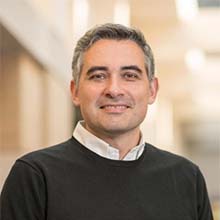The political resource curse is the idea that natural resources can lead to the deterioration of public policies through corruption and rent-seeking of those closest to political power. One prominent consequence is the emergence of conflict. In this paper, we take this theory to the data for the case of Mozambique, where a substantial discovery of natural gas recently took place. We focus on the anticipation of a resource boom and the behavior of local political structures and communities. For this purpose, we designed and implemented a large-scale field experiment to follow the dissemination of information about the newly-discovered resources. We designed two types of treatments, one with information for local leaders, the other with information and deliberation activities targeting communities at large. We measure a variety of theory-inspired outcomes through surveys, behavioral activities, and lab-in-the-field experiments. Our measures of actual conflict come from geo-referenced international datasets. We find that information given to leaders increases elite capture and rent-seeking, while information/deliberation given to citizens increases mobilization/accountability-related outcomes and decreases conflict. We conclude that while the political resource curse is likely to be in place, the dissemination of information to communities is a force in the opposite direction.


